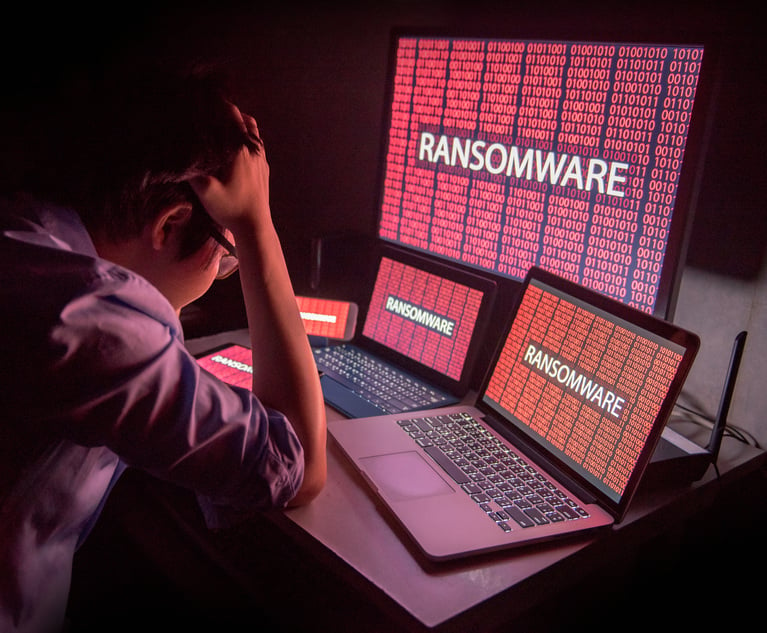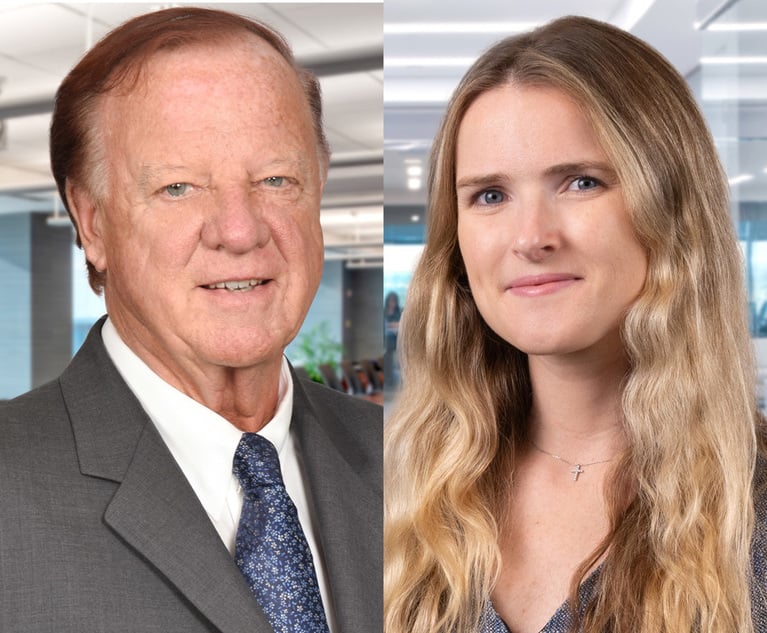
March 01, 2024 | New York Law Journal
Minding Integrity in the Face of Calamity: Professional Rules of Ethics for Counsel Responding to a Cybersecurity CrisisIn this article, Jennifer J. Daniels and Philip N. Yannella discuss some of the key rules of professional conduct for attorneys to be mindful of in the midst of a breach response.
By Jennifer J. Daniels and Philip N. Yannella
8 minute read

March 01, 2024 | New York Law Journal
Breaking Down Cybersecurity-Related Regulatory Developments for Registered Investment AdvisersThis articles discusses the SEC's proposed cybersecurity rules and their potential impact on registered investment advisors. The authors also provide tips on how to protect against cybersecurity risks for private fund managers, broker/dealers and registered investment advisory firms.
By Fizza Khan and Kyle Blair
8 minute read

March 01, 2024 | New York Law Journal
Data Privacy and Data Minimization in the US: Managing Data Risk in the Real WorldAs U.S. regulators begin to enforce the concept of data minimization for the protection of personal information, the age of unfettered data retention is coming to an end. Various states have enacted or will be enacting privacy laws that give consumers more control over the use of their data by businesses.
By Therese Craparo and Sarah Bruno
9 minute read

March 01, 2024 | New York Law Journal
Artificial Intelligence and the Law: Deepfakes, Privacy and the Ethics of LiabilityThis article aims to provide lawyers with an overview of the legal battles approaching AI and deepfake technology, including emerging litigation, developer liability, unintended consequences and ethical considerations.
By Daniel S. Marvin and Ashley Pusey
8 minute read

March 01, 2024 | New York Law Journal
The Unique Role of Counsel for Religious OrganizationsCounsel for religious organizations should be intimately familiar with the foundational principles of religion law to better advise the client in both transactional and litigation matters.
By Barry Black and Christopher Byrnes
9 minute read

March 01, 2024 | New York Law Journal
Continuation of a Business of a DecedentA fiduciary does not have automatic authority under EPTL §11-1.1 to continue a business of a decedent, incur obligations and thus render the estate liable. However, courts have stated that a fiduciary has an inherent authority to temporarily continue a business for the limited exceptions of converting business assets to cash for the benefit of the estate.
By C. Raymond Radigan and Tara E. Mahon
8 minute read

March 01, 2024 | New York Law Journal
The Increasing AI Disruption of CybersecurityArtificial intelligence has been disrupting cybersecurity prevention, regulatory compliance and security incidents management. In this article, Cathy Mulrow-Peattie discusses how companies can practically respond to these increasing AI disruptions.
By Cathy Mulrow-Peattie
8 minute read

March 01, 2024 | New York Law Journal
Preparing for the Expected and the Unexpected: The New York Department of Financial Services' Cybersecurity RegulationWhile the sufficiency of cybersecurity programs was previously subject to "reasonableness" standards, an "acceptable" cybersecurity program has become more objective as regulators, such as NYDFS, continue to implement, amend and mature applicable laws.
By Dan Pepper and Kate Nelson
9 minute read

March 01, 2024 | New York Law Journal
Conned by ChatGPT: The Growing Risks of AI-Powered Cyber AttacksIn this article, David Owen and Alexa Moses discuss new risks posed by AI-powered social engineering attacks, as well as several countermeasures individuals and companies can take to defend against them.
By David Owen and Alexa Moses
8 minute read

February 29, 2024 | New York Law Journal
Supreme Court To Decide Scope of Key Federal Corruption StatuteSection 666 of Title 18 has become one of the most important legal tools used in the federal prosecution of state and local corruption. It will soon be taken up by the Supreme Court. This article discusses another important federal anti-corruption statute, 18 U.S.C. §201. It then describes the competing interpretations of Section 666 and concludes with comments on the implications of a Supreme Court decision in 'United States v. Snyder'.
By Elkan Abramowitz and Jonathan Sack
10 minute read
Trending Stories
- 1With a 7-Figure Book Deal and TV Adaptation on the Way, This Dechert Associate Remains Committed to Her Day Job
- 2Northwestern University Pritzker Law School Hit With Reverse Discrimination Lawsuit
- 3Biden Will Be First Lawyer-President Without a JD From the 'T-14' in a Century
- 4The Week in Data: A Look at Legal Industry Trends by the Numbers
- 5Settlement reached in lawsuit over death of clerk prior to $51 million jury award
More from ALM
- Morgan & Morgan Class Action Attorneys Detail Pathway to Success Within Cybersecurity and Data Privacy Practice 1 minute read
- Holwell Shuster & Goldberg Partners Leverage 'Hostile' Witnesses to Secure $101 Million Verdict Against Walmart 1 minute read
- Legal Speak at General Counsel Conference Midwest 2024: Mike Andolina, Partner, White & Case 1 minute read



